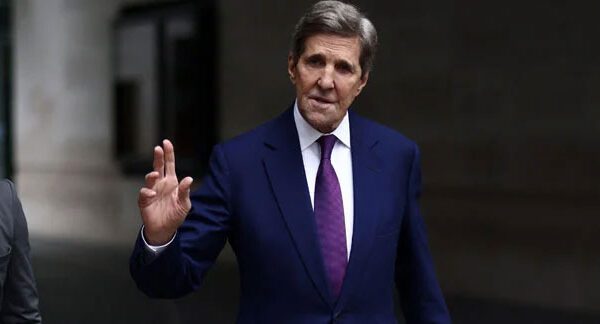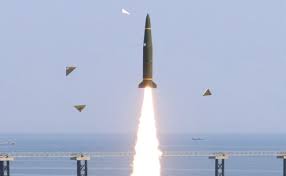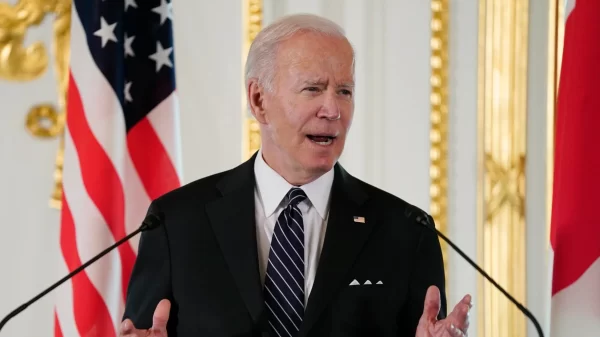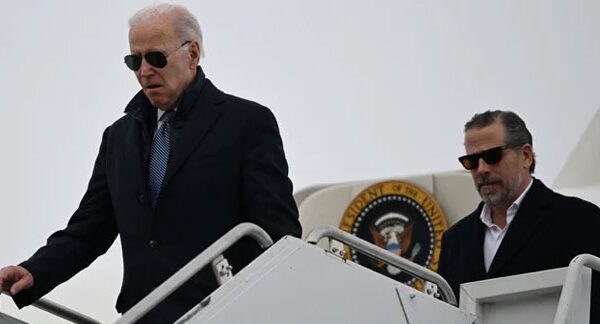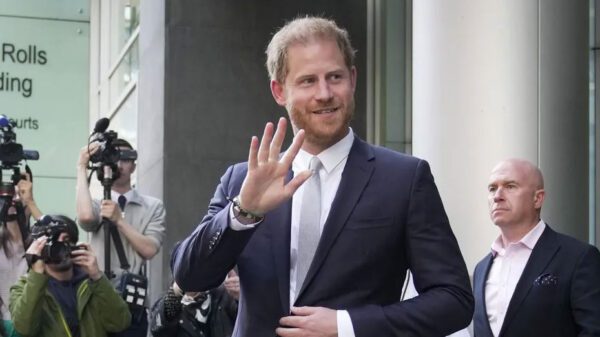Why have nationwide protests in China become a challenge for President Xi Jinping?
Fed up with China’s zero-covid policy, the country has seen an unusual series of protests in recent days.
Demonstrations in various Chinese cities have criticized President Xi Jinping and the Chinese Communist Party. This wave of protests and discontent is highly unusual in a country where there are few signs of dissent from censorship and police repression.
How did the protest begin?
The anger of many Chinese citizens over government policy is nothing new, although it has been the case in recent weeks as anti-government unrest began to rise in several of the country’s major cities.
Last week, a series of violent protests broke out at the world’s largest iPhone factory in the city of Zhengzhou. Images broadcast live on social media showed how police and security personnel in protective clothing violently suppressed the protests.
The factory was closed in October due to a surge in Covid cases, prompting some employees to leave. Then Foxconn hired some new employees on the promise of better facilities.
But these employees later denounced that the promises were not fulfilled as per the stipulated terms and the strict measures taken to prevent the spread of the Covid epidemic across the country fueled the anger.
In this way, last week on November 24, in an apartment building in Urumqi, the capital of the Xinjiang Autonomous Region of China.
Xinjiang has been under strict restrictions since August to prevent the spread of Covid-19, although authorities have assured residents of the burned-out building are free to leave their homes, but many believe the restrictions imposed against Covid-19 have been imposed. Strict restrictions have contributed to this tragedy.
The fire incident has served as a trigger for protests that have spread this weekend in cities such as Beijing or Shanghai.
Over the past several months, there has been public outrage over deaths caused by house-bound restrictions in many cases, despite strict censorship by the Chinese authorities. And it was coming out in the form of videos.
Earlier this month, a Zhengzhou family claimed their baby died because the ambulance that was supposed to take him to hospital was delayed due to Covid restrictions. Another 14-year-old girl who was quarantined died in October because she could not leave her home for treatment.
In September, when a magnitude 6.6 earthquake hit the Chengdu region, residents were banned from leaving their homes. 65 people were killed in this incident.
In September, a bus carrying citizens to a quarantine center in the Chinese city of Guizhou crashed, killing 27 people.
Along with all these incidents, the reason for the outrage of the citizens is that China still seems to be stuck in the year 2020 regarding the Covid restrictions. While in most countries of the world, the restrictions imposed during the Covid epidemic have now been lifted.
And this has become even more evident with the broadcast of football World Cup matches, where large crowds in Qatar’s stadiums and stands can be seen without masks or Covid protection measures.
There is currently no widespread lockdown in China and some strict restrictions have been relaxed. Still, the central government has asked local authorities to impose strict lockdowns in places where Covid cases have been reported, even if only a few cases have been detected.
When these cases came to light, the entire population was tested on a large scale. Those who tested positive were placed under house arrest or in state quarantine facilities. All schools and businesses were closed except food shops.
Despite these restrictions, the biggest wave of Covid in the country since the beginning of the epidemic has not been stopped.
What is happening now?
While there have been occasional protests in China over the years for a variety of reasons, from land disputes to specific incidents of police abuse, what is happening in China these days is where some protesters have called on the Chinese leadership to impeach the president. It is unprecedented to have the courage to openly criticize Xi Jinping.
The hardships of the people of China have been exacerbated by strict measures against the spread of Covid, which currently have no clear timeline for when they will end. The strict restrictions against Covid have become an experience that has united many citizens and contributed to the spread of protests to the four corners of the country.
BBC Asia correspondent Tessa Wong says the protests are an ‘unprecedented challenge’ for Chinese President Xi Jinping, and expectations are high on how he will respond to the protests.
In a country where criticism of the president or the Communist Party can lead to jail time, the streets of Shanghai are filled with voices calling for the resignation of President Xi Jinping or the party that has ruled the country since 1949.
Last weekend, thousands of people took to the streets of Shanghai to remember the victims of the Urumqi fire and demonstrate against the Covid restrictions.
On Sunday, instead of ending, the protests began in the capital Beijing, where hundreds of people protested and sang the national anthem and gave anti-government speeches.
According to some photos and videos posted on social media, dozens of people earlier marched peacefully and sang the national anthem at Tsinghua University.
Protests were also held in the southwestern Chinese cities of Chengdu, Xi’an and Wuhan. Where the Covid epidemic started about three years ago.
Where many protesters have decided to protest by simply showing a blank page, symbolically saying everything they want to say but the authorities have forbidden them to do so.
The protests over the weekend appeared to have been suppressed by the government on Monday, while public outrage over government policies continued on social media.
Currently, the Chinese government does not want to acknowledge the wave of public dissatisfaction with government policies on social media, but the government’s response to the protests has been repressive.
Dozens of people have been arrested as a result of the protests in Shanghai. Police have also erected large blue barriers on a main thoroughfare in Megalopolis, where protesters gathered over the weekend.
During the police crackdown in Shanghai, several foreign journalists recording the protests were tortured and detained for several hours by police, including BBC reporter Ed Lawrence.
Despite government crackdowns, the police response to protesters has so far been relatively restrained.
However, some analysts have warned that those who dare to publicly criticize President Xi Jinping’s policies could face severe punishment.
Isabelle Hilton, founder of China Dialogue, told the BBC: “Don’t forget that the (Chinese Communist) Party has the biggest digital weapon. It tracks your every move through phone apps. So they know a lot about people, what they are saying at a particular time or night, who they are interacting with, where they are.’
China, which has no free press, also tightly controls the Internet in the country, where criticism of the authorities is banned and critics are prosecuted.
Despite the censorship, however, news and photos of the protests were widely shared on the country’s social media, fueling the protests.
This censorship has even extended to images of the Football World Cup.
China apparently avoids showing that the rest of the world’s restrictions against Covid are almost lifted. Therefore, China’s state-run CCTV channel, which broadcasts these matches, removes images in which the public can be seen up close and replaces them with images of the teams’ benches or players.
The Chinese government appears to have grossly underestimated the growing social discontent over the zero-covid policy in recent months.
“For a political organization that doesn’t have many priorities other than staying in power, this is a real challenge,” said the BBC’s China correspondent Stephen McDonnell.
Beijing has already said it does not intend to back down from its policies, and there is currently no definitive time frame for when sanctions could be eased.
While the rest of the world used lockdowns and social distancing measures during the lead-up to the Covid vaccine and subsequent mass vaccination campaigns in countries, China continues to rely on restrictions to contain the spread of Covid. .
Although the country has developed its own vaccines, they are not as effective as Fires or Moderna vaccines, which are produced using mRNA technology, and which China has decided not to import.
While two doses of the Pfizer or Moderna vaccines provide up to 90% protection against the disease, the China-made Synavec vaccine provides only 70% protection.
Low protection against the epidemic includes the fact that vaccination campaigns in China are not as extensive as in other countries, and many elderly people remain unvaccinated.
The long lockdown also means that many people have not developed natural immunity against the virus. This causes new strains of the coronavirus to spread faster than at the start of the epidemic.
And here comes the paradox. Because China has the lowest death rate from Covid in the world. Only 5,200 deaths have been officially recorded in the country as a result of the virus.
The BBC’s health and science correspondent James Gallagher says “If China doesn’t lock down an area as soon as the first cases of the virus appear, it could risk a dire situation like the early days of the epidemic.”
According to estimates last March, the end of the zero-covid policy in China could overwhelm the country’s hospitals with patients and lead to more than 1.5 million deaths.
China’s zero-covid policy has an economic impact on China itself and global markets, which suffer as the world’s factories grind to a halt due to lockdowns.
According to Suryana Tiwari, the BBC’s Asia economics correspondent, China was already facing an unemployment crisis, particularly among the youth. The fear of the lockdown has forced many families and businesses to decide not to spend more, slowing the country’s economic growth.

